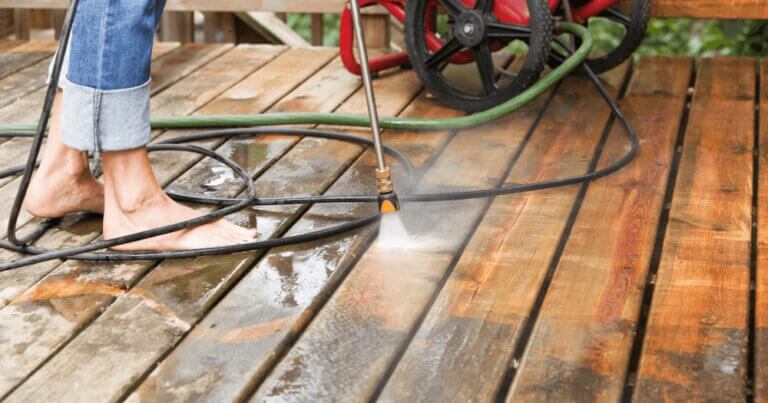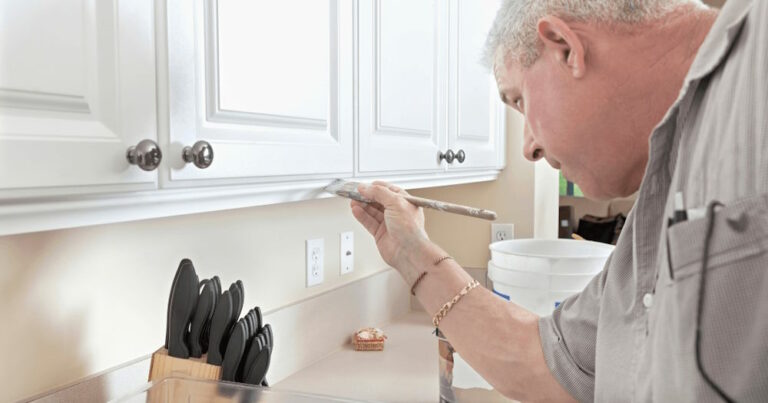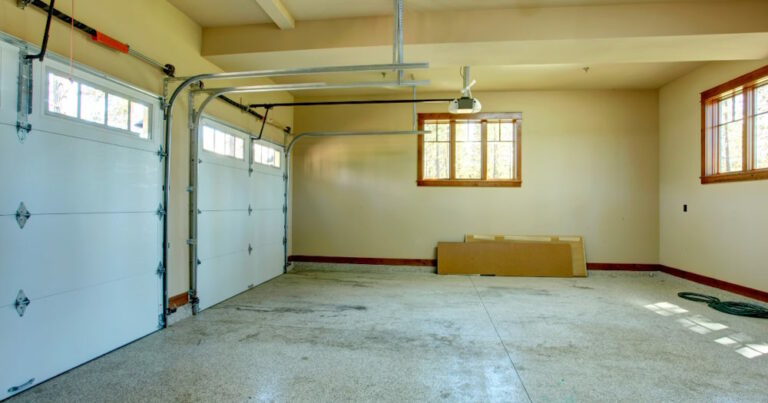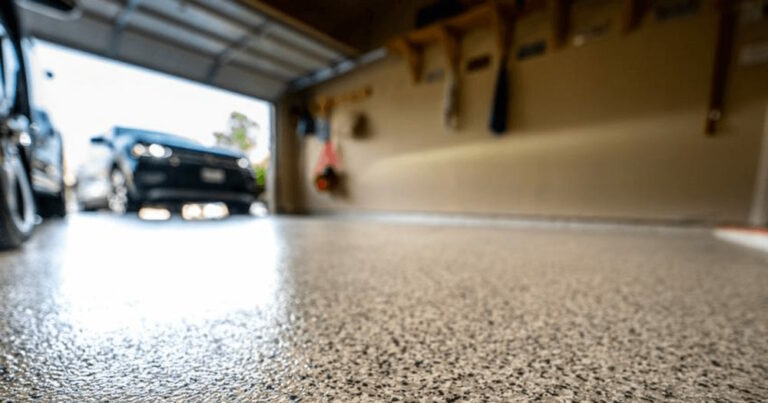If you own or manage a commercial business, you understand the importance of investing in the right infrastructure. When it comes to your floors, traditional options like concrete floors can become worn down over time, leaving your business vulnerable to safety hazards and unattractive appearance. This is where commercial floor coating comes in, providing a durable, safe, and aesthetically pleasing solution for your business needs.
Commercial floor coating is a specialized flooring solution designed to provide an added layer of protection to your commercial floors. With its unique properties, commercial floor coating offers businesses an array of benefits, including increased durability, enhanced safety features, and a sleek, professional appearance.
Key Takeaways:
- Commercial floor coating is a specialized flooring solution for commercial businesses.
- It offers enhanced durability, safety features, and a sleek, professional appearance.
- Investing in commercial floor coating is a valuable solution for businesses looking for long-term infrastructure.
- It’s important to consider factors such as facility type, expected foot traffic, and specific flooring requirements when choosing the right commercial floor coating.
- Proper maintenance and care can maximize the lifespan of your commercial floor coating investment.
What is Commercial Floor Coating?

Commercial floor coating is a specialized solution that provides a protective layer over existing flooring materials in commercial spaces. Unlike traditional commercial floors that can be prone to damage, commercial floor coating offers an added layer of durability, safety, and aesthetics to your business environment.
When applied correctly, commercial floor coatings can withstand heavy foot traffic, spills, and daily wear and tear, helping to extend the lifespan of your floors. It also provides a slip-resistant surface that can reduce accidents and injuries in the workplace.
Commercial floor coating can be applied to a range of flooring system, including concrete, tile, and even wood. It is an ideal solution for businesses looking to upgrade their flooring without the expense and hassle of a complete renovation.
Advantages of Commercial Floor Coating
Investing in commercial floor coating can provide numerous benefits for your business. Here are some of the advantages:
| Advantages | Description |
| Durability | Commercial floor coatings are specially formulated to provide a protective layer that can withstand heavy foot traffic, harsh chemicals, and other damages. |
| Safety | Slip-resistant surfaces can be added to the coating, reducing the risks of accidents caused by falls or slips. |
| Aesthetics | With the availability of various designs and colors, commercial floor coating can enhance the appearance of your business premises, creating an inviting and professional atmosphere. |
| Cost-effective | Compared to other traditional flooring options, commercial floor coating can be a cost-effective solution in the long run due to its durability and low maintenance requirements. |
| Eco-friendly | Some types of commercial floor coatings are environmentally friendly, made with sustainable materials that reduce the carbon footprint of your business. |
With these advantages, commercial floor coating can provide a business solution that enhances the functionality, safety, and aesthetics of your commercial space. Whether it’s for a warehouse, hospital, retail store, or any other facility, commercial floor coating can be tailored to meet your specific needs.
Types of Commercial Floor Coating
When it comes to choosing the right commercial floor coating for your business, it’s important to consider the specific needs of your facility. There are several types of commercial floor coating available, each with its unique properties and suitability for various applications.
Epoxy Floor Coatings:
Epoxy flooring coats are a popular choice for commercial floors due to their durability and versatility. They are made from a mixture of resins and hardeners, providing a strong and protective surface that can withstand heavy foot and vehicle traffic. Epoxy floor also offer chemical resistance, making them suitable for use in healthcare facilities, laboratories, and manufacturing plants. They come in a variety of colors and finishes, allowing for customization to match your business’s aesthetic.
Polyaspartic Coatings:
Polyaspartic coatings have a faster cure time than epoxy coatings, making them ideal for businesses where downtime is not an option. They are also highly durable, providing excellent protection against scratches, abrasions, and chemical spills. Polyaspartic coatings are often used in high-traffic areas such as parking garage floor, showrooms, and retail spaces.
Urethane Coatings:
Urethane coatings offer high resistance to impact and abrasion, making them ideal for commercial floors that are exposed to heavy machinery or equipment. They are also highly chemical-resistant, and low-maintenance, making them a popular choice for industrial facilities, warehouses, and distribution centers.
| Type of Coating | Benefits | Suitable for |
| Epoxy Coatings | High durability, chemical resistance, versatility, aesthetic customization | Healthcare facilities, laboratories, manufacturing plants, retail spaces |
| Polyaspartic Coatings | Fast curing time, high durability, scratch and abrasion resistance | Parking garages, showrooms, retail spaces |
| Urethane Coatings | High impact and abrasion resistance, chemical resistance, low maintenance | Industrial facilities, warehouses, distribution centers |
By understanding the different types of commercial floor coatings and their specific benefits, you can make an informed decision that meets the unique needs of your business.
Choosing the Right Commercial Floor Coating
When selecting the appropriate commercial floor coating for your business, there are several factors to consider. Below are some essential guidelines to help you make an informed decision:
- Facility type: The type of facility plays a vital role in determining the best floor coating. For example, healthcare facilities require coatings that can withstand frequent sterilization and cleaning, while the industrial sector might require coatings that are resistant to chemicals and abrasion.
- Foot traffic: The level of foot traffic in your premises is an essential consideration. High-traffic areas require coatings that can withstand wear and tear, while low-traffic areas might not need such coatings.
- Specific flooring requirements: Different areas of your business premises might have specific flooring requirements. For example, your loading dock might need coatings that provide excellent traction, while your showroom might require coatings that create an aesthetically pleasing environment.
Installing Commercial Floor Coating

Installing commercial floor coating requires careful preparation to ensure a smooth and successful application. The following steps detail the installation process:
- Surface Preparation: The existing flooring surface must be clean, free of debris, and any existing coatings or sealers must be removed. Any imperfections or damage must be repaired.
- Priming: A primer is applied to promote a strong bond between the coating and flooring surface.
- Application: The commercial floor coating is applied in multiple layers using specialized equipment. The type and number of layers will depend on the specific coating and expected usage of the flooring.
- Curing: The coating is allowed to cure, or dry and harden, for the recommended amount of time before use.
It is recommended that installation is performed by professional contractors to ensure the best results. They have the necessary equipment and expertise to complete the installation process efficiently and effectively.
Application Techniques
The application technique used for commercial floor coating will vary depending on the specific coating and equipment being used. Some common techniques include:
- Spray application
- Roller application
- Trowel application
The technique used will impact the final appearance and texture of the flooring surface, so it is important to discuss options with the contractor to determine the best technique for your specific requirements.
Curing Times
Curing times for commercial floor coating will depend on the specific coating and manufacturer’s recommendations. It is important to allow sufficient curing time before allowing foot traffic or placing heavy equipment on the flooring surface. Failure to allow sufficient curing time can result in an uneven or damaged surface.
Maintenance and Care
Proper maintenance and care for commercial floor coating can extend its lifespan and preserve its appearance. Some tips for maintaining and caring for commercial floor coating include:
- Regularly sweeping and mopping to prevent dirt buildup and stains
- Avoiding harsh cleaning chemicals that can damage the coating
- Regularly inspecting the coating for any damage or wear and tear
- Repairing any damage promptly to prevent further damage to the coating
With proper maintenance and care, commercial floor coating can provide long-lasting durability and enhance the safety and aesthetics of your business premises.
Cost Considerations of Commercial Floor Coating
When considering commercial floor system coatings, the cost is a crucial factor. Understanding the expenses involved will help you make an informed decision and budget accordingly.
The cost of commercial floor coating varies depending on several factors, including the type of coating, the complexity of the installation process, and the size of the area to be covered.
Type of Coating
The type of commercial floor coating you choose will affect the cost. Commercial epoxy coating is the most popular and cost-effective option, while polyaspartic and urethane coatings are more expensive due to their military grade topcoat properties.
Installation Costs
The installation process for commercial floor coating is complex and requires professional expertise. The cost of installation varies depending on the type of coating, the condition of the existing floor, and the size and complexity of the space.
Some factors that can increase the cost of installation include:
- Removing existing flooring or coatings
- Repairing any damage or cracks in the existing floor
- Additional surface preparation, such as shot blasting or diamond grinding
- Customization features, such as adding logos or designs
Maintenance Costs
One of the advantages of commercial floor coating is that it requires minimal maintenance. However, some maintenance is necessary to ensure the coating remains intact and continues to provide the desired benefits.
The cost of maintenance depends on several factors, including the type of coating, the amount of foot traffic in the area, and the frequency of cleaning.
Long-Term Value
While the cost of commercial floor coating may seem high upfront, it provides significant long-term value. With increased durability and minimal maintenance requirements, the coating can save businesses money in the long run by extending the lifespan of the flooring and reducing the need for frequent repairs or replacements.
Overall, the cost of commercial floor coating is a worthy investment for businesses looking to enhance the safety, durability, and aesthetics of their commercial space.
Conclusion
After reading this comprehensive guide, you now have a better understanding of the benefits and features of commercial floor coating. By protecting your floors with this innovative solution, you can enhance the durability, safety, and aesthetics of your business premises.
If you’re ready to invest in your commercial floors, our team at Canyon Painting is always ready to help! Contact us today and learn let’s upgrade your commercial floor system!





